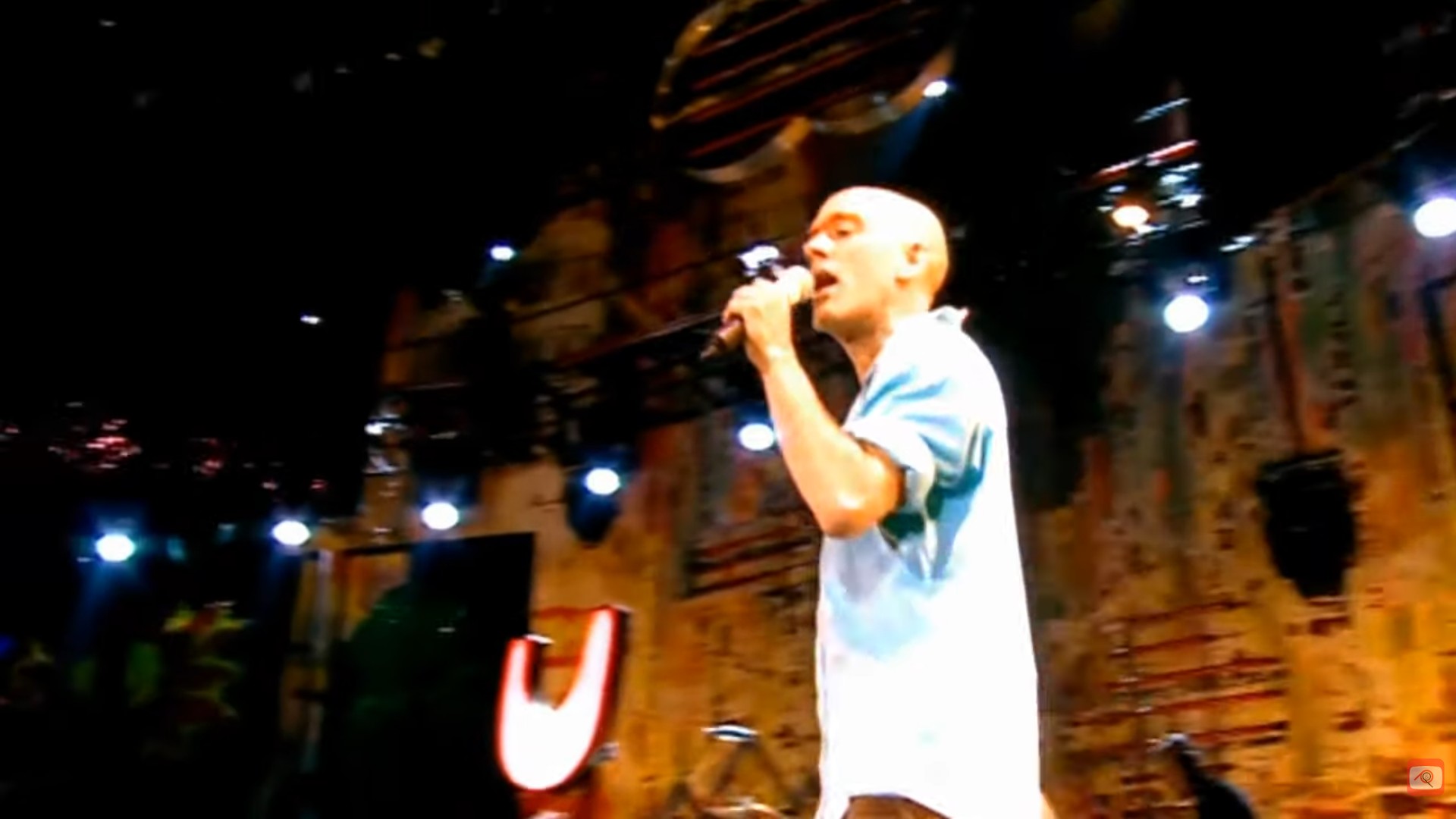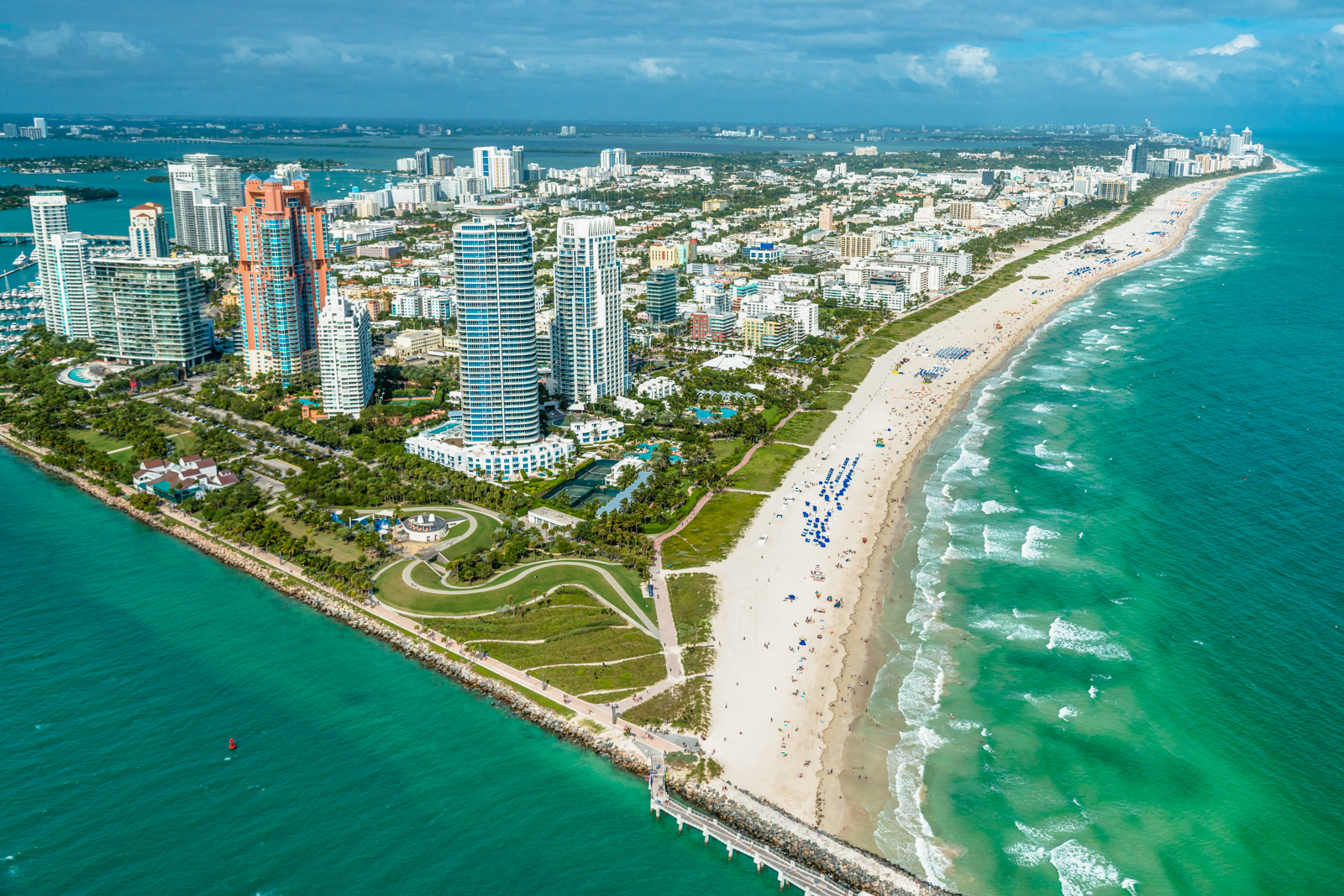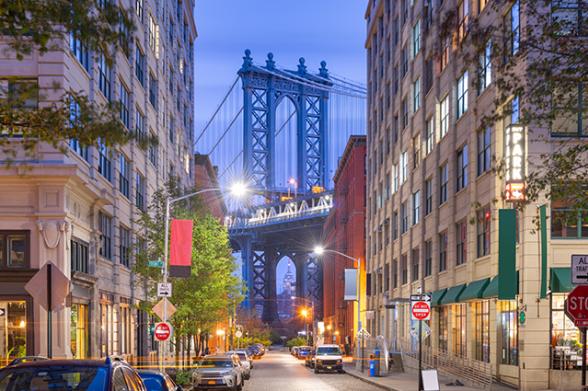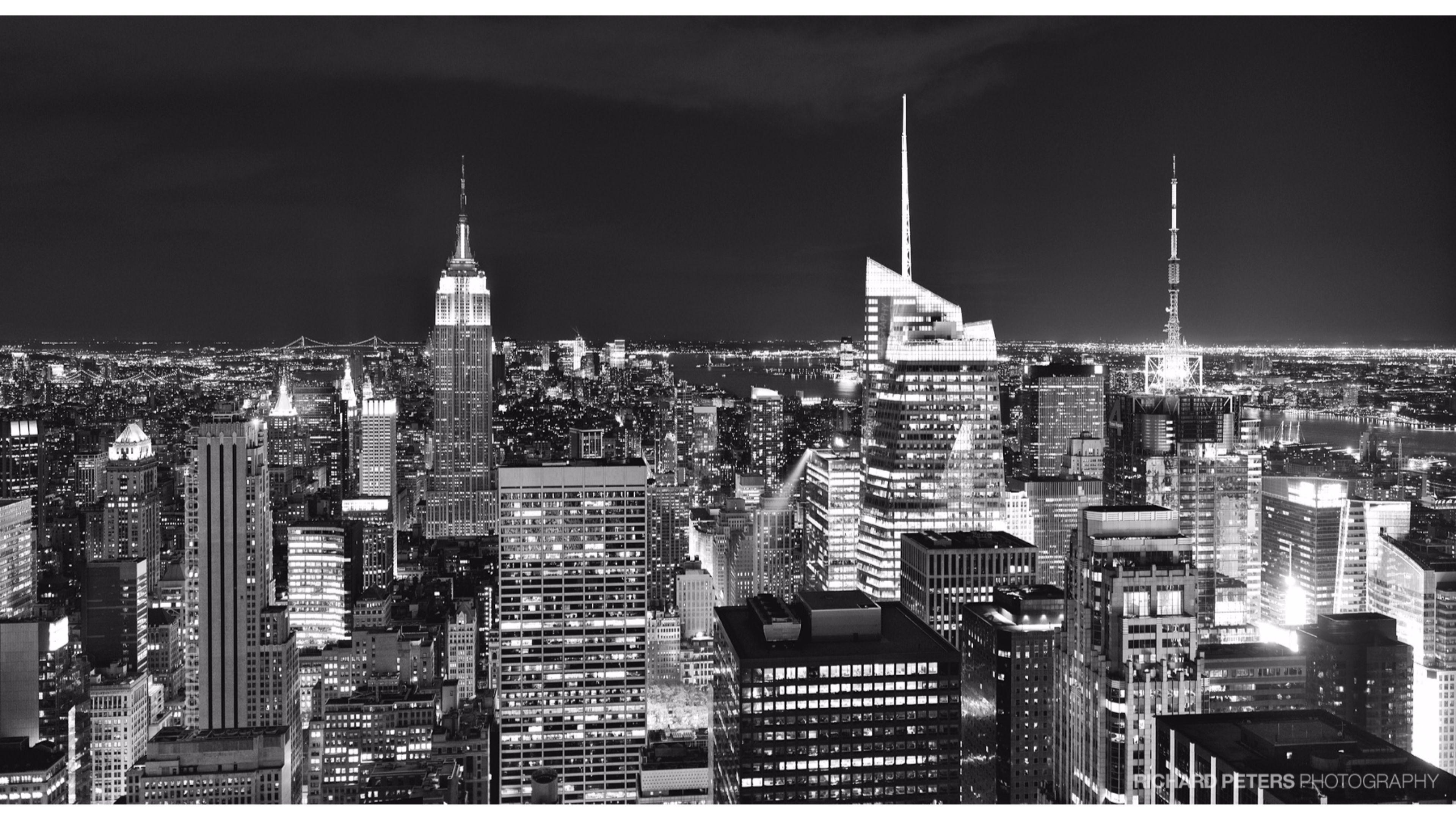
Every generation believes it’s living through the end of the world. With all that’s on social media and in the news now, ours might finally be right, but not in the way we think. And you reader, entrepreneurs, investors, and economic development leaders, are the people we need rising to the challenges.
R.E.M.’s It’s the End of the World as We Know It (And I Feel Fine) isn’t just a relic of late-80s college radio that holds space in my brain. It’s prophecy with rhythm; a lyrical panic attack set to jangly guitars. Michael Stipe didn’t just write a song; he captured the manic absurdity of a culture pretending it was under control while everything it built teetered on collapse. The Cold War, Wall Street, tabloid politics - it was all unraveling under the weight of its own confidence.
Sound familiar?
We’re humming the same chorus in a different decade. The headlines are no longer about mushroom clouds and Madonna but about AI taking jobs, crypto burning billions, kids glued to screens, cities drowning in housing crises, and politicians arguing over which apocalypse is most profitable. The internet, supposedly our global enlightenment project, has become the world’s largest anxiety machine.
And yet, everyone’s walking around smiling. Economic development offices hold ribbon cuttings for accelerators no one joins. Venture firms issue performative blog posts about being supportive while quietly doubling down on the same five founders from Stanford. Governments host innovation summits with the PowerPoint slides they used before COVID. All set to the beat of “and I feel fine.”
Let’s not pretend: no one feels fine (except maybe, for your AI)
R.E.M.’s chorus wasn’t optimism; it was irony. That “and I feel fine” is the collective whistle of a species pretending the ground isn’t shaking. It’s the emotional equivalent of a startup founder answering “Great!” when you ask how things are going, knowing the burn rate and the investor pipeline say otherwise. I’m speaking to every single one of you I know because I know we all do it; consider this your permission to breathe and stop pretending.
Founders live in that space between chaos and confidence. It’s where imposter syndrome and resilience share a bunk bed. The cultural myth of entrepreneurship (garage-to-glory) teaches us to perform certainty even when the floor’s collapsing. That’s fine when it’s individual psychology. It’s dangerous when cities, governments, and entire economies start doing it too.
Take your pick of “fine” facades.
-
The federal government proclaims small business growth while early-stage capital availability falls off a cliff.
-
Startup accelerators brag about hundreds of graduates while quietly avoiding any mention of how many still exist two years later.
-
Local EDOs celebrate the arrival of a Fortune 500 satellite office as if that’s innovation, when it’s really outsourcing with a press release.
We’ve industrialized pretending everything’s fine. And that’s the real end of the world. Not asteroids or AI but the slow death of honesty in how we build the future.
Art as a Mirror
Art has always been how we process collapse.
When Stipe rattled off his breathless list, “Leonard Bernstein, Leonid Brezhnev, Lenny Bruce, and Lester Bangs,” it wasn’t random nonsense; it was culture eating itself in real time. A list of icons and ideologues, mashed together in media.
Fast forward thirty years, and we’ve replaced rock critics with influencers, Brezhnev with billionaires, and Bernstein with AI-generated symphonies. The chaos hasn’t changed, just the chorus.
Music, film, and art give us rehearsal space for reinvention. They show us that collapse is always a prelude. Punk didn’t destroy rock; it raged it. Hip-hop didn’t shatter pop; it redefined ownership, language, and cultural power. Tech is supposed to do the same and yet somehow, the startup world turned disruption into a brand with a book instead of revolution.
Entrepreneurship is fundamentally one of our great art forms; instead, we’ve commodified it. Demo days are talent shows. Accelerators are subscription models. And innovation (once rebellion: disruptive innovation) has become a cover band at the fall festival where economic development departments chase local headlines instead of outcomes.
The Real End: When Institutions Can’t Adapt
What’s ending isn’t civilization, it’s the systems that stopped evolving. Centralized industries that can’t handle decentralized power. Political systems optimized for obstruction, not invention. Education systems that prepare students for jobs that AI already does better. Healthcare systems designed for billing, not healing.
In startup terms: the product-market fit for our institutions expired.
A lot of what feels like the end is really just us not being able to see what’s next. We’ve been through massive tech shifts before, the internet, social media, and every time it felt like everything was breaking. But what actually happened was adaptation, not the end of the world.
I had a great chat with Founder Institute’s Daniyal Ashraf because he’s on the opposite side of the planet from me; extreme perspective is invaluable in improving entrepreneurship in cities.
That’s the inflection point we’re living through: adaptation requires discomfort. And founders (real founders) live for discomfort. Entrepreneurs are the first responders of change. They step in when systems fail and start rebuilding with duct tape and conviction.
Policy needs to stop treating entrepreneurship as a PR function and start treating it as national infrastructure.
The Startup Theater Economy
Cities love to brag about innovation districts, coworking hubs, and “ecosystems.” But most are built like movie sets; beautiful façades with nothing behind them. The incentives reward theater, not traction.
A city gives $2 million to an accelerator that attracts three out-of-town founders who leave when the cohort ends. Meanwhile, local entrepreneurs can’t afford a permit or find broadband. Policymakers cheer when a big tech company relocates 100 jobs and ignore when ten startups quietly die.
It’s the same logic as a record label chasing hits while ignoring the garage bands and studios actually inventing new sounds and yet, we wonder why our economic charts look like scratched CDs.
Cities can't prioritize competing for companies anymore, they must compete for creators. The people who will stay, build, and define what’s next. And that means investing in culture as much as capital.
Culture is what gives people a reason to stay when the money isn’t flowing. It’s what attracts the ones who build meaning, not just profit.
The pressing question everyone is asking, “Yeah, but what do we do?”
Put Platform Beneath Noise
This is where something clicked for me recently: the infrastructure that actually works looks less like a startup “program” and more like an operating system.
Take what Founder Institute built for example, not a brand that cities buy or a trophy they hang on a wall, it’s a platform. A civic OS for entrepreneurship.
Cities can shape it however they want: make it local, name it whatever fits the region’s character, focus it on sectors that make sense. The power is in the methodology, structured and tested programming, accountability, and mentorship that persist even when local headlines fade or a funding cycle ends.
If a city’s accelerator closes, with a platform in place, the experience for entrepreneurs remains, with everyone connected globally. If political winds shift, the methodology doesn’t vanish. It’s the one thing that can survive the end of the world as we know it because infrastructure such as this, increasingly so with AI embedded, is built for adaptation.
The real test of an ecosystem isn’t how it celebrates success but how it sustains resilience. If your civic startup infrastructure can’t outlast a budget freeze or an election, it was never infrastructure, it was theater.
Rewrite the Civic Code
Listen carefully, with the disruption of jobs by AI, the uncertainty of cryptocurrency, the fact that education can’t keep up with workforce demands, healthcare bankruptcy, political extremism, over regulation, eye of a hurricane, listen to yourself churn, world serves its own needs… your city is struggling whether you admit it or not. Heck, everyone is moving to Texas?? That means they’re leaving there.
This is where policy needs a reboot: if cities want to do more than pretend, they need to start designing for uncertainty.
-
Invest in resilience, not PR.
Build programs that outlast mayors, not news cycles. Fund platforms and training ecosystems, not photo ops. -
Localize the identity.
Stop chasing “Silicon [Insert City]” branding. A biotech founder doesn’t care about your hashtag. They care about lab space, permits, and specialized mentorship. -
Train entrepreneurial people.
Create pipelines through schools and community colleges where entrepreneurs learn to avoid mistakes. Teach economic agency, not just employment. -
Measure outcomes, not optics.
Founder retention. Revenue growth. Funding. Jobs created. Anything else is vanity metrics with better fonts. -
Align incentives with innovation.
Offer procurement pathways for startups. Make cities the first customer of local innovators. That’s how you turn rhetoric into results.
It’s not the apocalypse! We're experiencing a system update.
Treat Culture as Infrastructure
To really understand what this means, go back to R.E.M.
That song wasn’t just about fear; it was about rhythm. A wild, breathless sprint through chaos that grooves. That’s what real innovation feels like; chaos you can dance to.
Let’s pause, maybe you don’t even know the song; tune in:
Art does what economics often can’t: it reminds us of our humanity in transition. Cities that ignore culture as an economic asset will never attract entrepreneurs who create culture for a living. Music scenes become startup scenes because they both thrive on experimentation, identity, and belonging.
Austin was never about tech; it was about music, weirdness, and community: tech followed. Sam Davidson, tell me I’m wrong: Nashville reinvented itself the same way, blending creative grit with entrepreneurial infrastructure. The Bay Area was once beat poets and hippies before it was venture capital. Every innovation hub starts as culture.
So, if we are experiencing the end of the world (or the end of a thriving economy in your city), what’s dying is the idea that economics and culture are separate and I need you to stop treating startups as tech, entrepreneurship as business class, and venture capital as local investors because what matters is that we create there a culture that will invent what’s next.
The future belongs to the cities that stop pretending they’re fine and start composing their next verse.
The End of a Smaller World
It might feel like collapse, but collapse is just gravity reminding us we’ve been building on sand. Your startup ecosystem is built on sand, I know it is, I study this.
If anything, what’s ending is the smaller world in which gatekeepers decide who gets funding (look at how Adeo Ressi and Decile Group or VC Lab are creating and connecting capital), where a local accelerator promised the world and delivered some mentors from down the road, where bureaucrats mistook control for stability, and where “innovation” meant copying Silicon Valley’s mistakes.
The next world, the one we build now, will be defined by those willing to stop pretending and start inventing.
Daniyal added from Pakistan:
Entrepreneurship isn’t just about creating companies, it’s about creating the answers to what comes next and who builds it. Cities that invest in entrepreneurship aren’t just creating jobs, they’re creating their own narrative about what they’re becoming.
That’s the real revolution. When cities, founders, and policymakers realize that the future isn’t handed to them, it’s written, composed, and remixed.
It is the end of the world as we know it.
AI will eat jobs, crypto will implode again, the economy will wobble, and politicians will keep tuning their fiddles while Rome refreshes Instagram instead of burning. But that’s fine as long as you're changing to better serve entrepreneurs, because endings are where entrepreneurs begin.
Start rehearsing for what’s next. If your city’s startup story was a song, would it be an anthem of reinvention or just another cover band pretending everything’s fine? Share with me your city’s song and let’s turn that culture into innovation.



